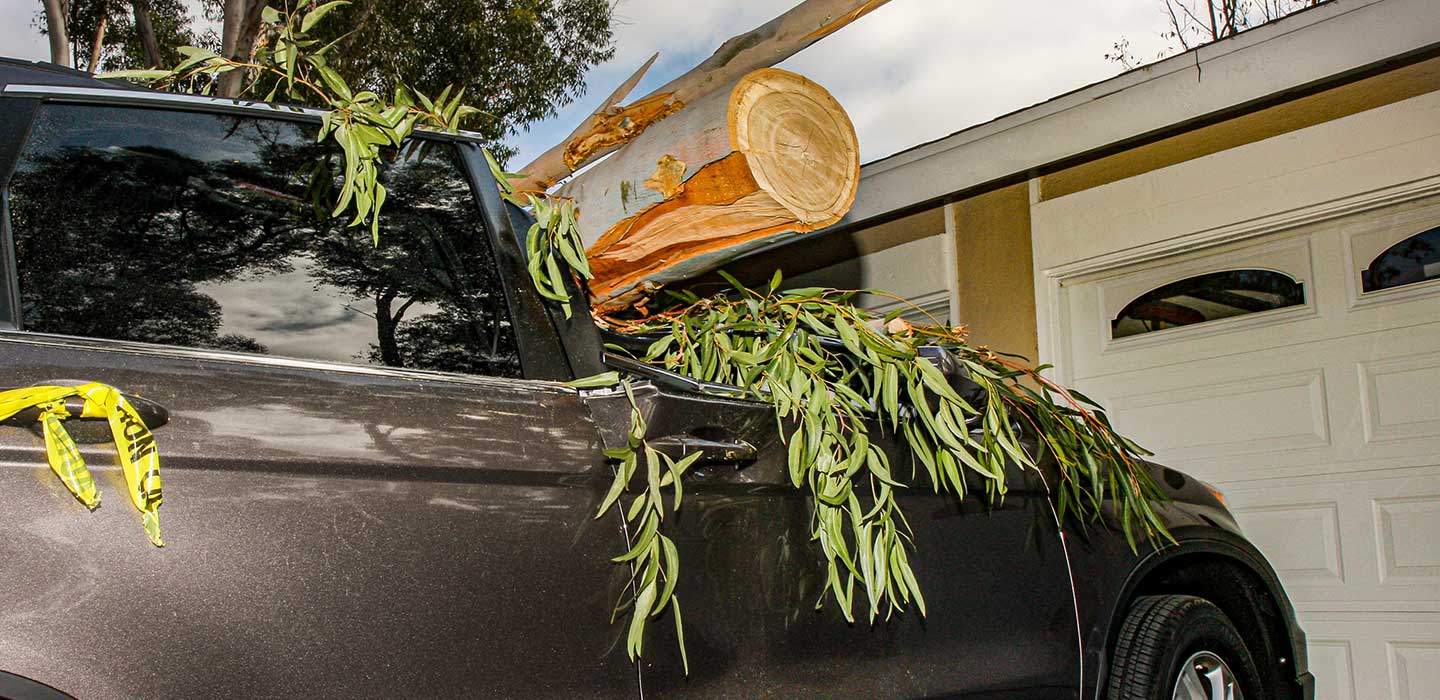If disaster strikes, are you financially ready? Whether it's a wildfire, earthquake or storm, make sure your home, car and property are adequately insured, and you have emergency savings to draw on if needed.
Some tasks take longer than others to set up, so getting ready ahead of time is a smart strategy.
What to Do Now
Update Your Insurance Coverage
If you have more questions than answers about what your insurance covers, make time now to call your insurer for a full review. If you live in an earthquake or flood zone, consider adding earthquake coverage to your existing policy and a separate flood insurance policy through the National Flood Insurance Program. Check to see if you have actual cash value (ACV) or replacement cost coverage on your homeowners or renters policy. The first fixes home damages and replaces your belongings, minus depreciation — which means it won’t cover your losses at full value. Unlike ACV, replacement cost coverage will pay for all the damage. This can result in significant savings if you need to file a claim. Cars can be damaged during a disaster, so make sure your car insurance has all the coverage you need. Your insurer can guide you on what’s right for your situation.
Build an Emergency Fund
If you don’t have much in savings, work toward having at least $1,000 in reserve, should disaster strike. The easiest way to build your fund is to set up automatic payroll transfers to a special savings account. You should choose one that isn’t linked to your checking account, so you don’t have to use it. With automatic transfers, you will reach your goal sooner than you think. Make sure to keep some cash on hand in a safe place, in case you can't get to an ATM.
Back Up Your Financial Documents
Store password-protected copies of your paperwork, including insurance, credit card and other financial information on an encrypted external hard drive or reputable secure online server. You can also take photos of your household items for insurance claims purposes.
Set Up Web Bill Payments and Direct Deposits
Setting up online bill payments will ensure your bills are paid on time. You can set up your accounts to pay bills automatically. If you want more control over how and when you pay bills, just make sure all your accounts are added to your list of people to pay. Then, no matter where you are, you can pay your bills to avoid late charges and dings to your credit. Sign up for direct deposits of your paychecks and any other income, too.
Create or Update an Emergency Plan
In case of a disaster, you and your family will need to understand and agree on things like evacuation routes, where to meet up if you are separated and preparing an emergency kit. The Red Cross has information to help you build your own emergency plan.
Prepare Your Mobile Phone
Getting your mobile device emergency-ready is important before or after disaster strikes. Consider downloading trusted apps that can help you navigate emergency situations. For example, the Red Cross offers a free app you can change to fit your needs. It has over 35 different severe weather and emergency alerts and information to help keep you and your family safe. You can also sign up for text alerts from local or state governments and your children’s schools to keep you informed of essential information. Make sure all your contacts are up to date. Make a list of emergency contacts, in case emergency workers need to reach family or friends when you can’t.
What to Do During a Disaster
Stay Engaged and Informed
Listen to the radio or TV for information and follow their instructions. Make sure you follow your emergency plan and have your emergency kit ready. During a catastrophe, networks get slammed, so use text messaging to communicate. Don’t use your phone unnecessarily because it can add to the congestion. Keep a phone charger and charged batteries in your car so you can recharge your phone when you need to. If you have a landline, forward calls to your mobile device, so people can contact you.
Use Social Media
When you post, you can reach your network of contacts very quickly. Using Twitter or Facebook, you’ll be able to tell folks where you are and that you’re OK.
What to Do After a Disaster
Log on to DisasterAssistance.gov to see if you are eligible for financial disaster relief. Document all your damage and keep receipts, before you file an insurance claim. Don’t fall for scammers who may pretend to be utility companies, government help agencies, contractors or charities. They want access to your financial information or payment of some kind. Never provide personal information to people you don’t know. You should always ask for identification and confirm with the organization that the person works for them.

